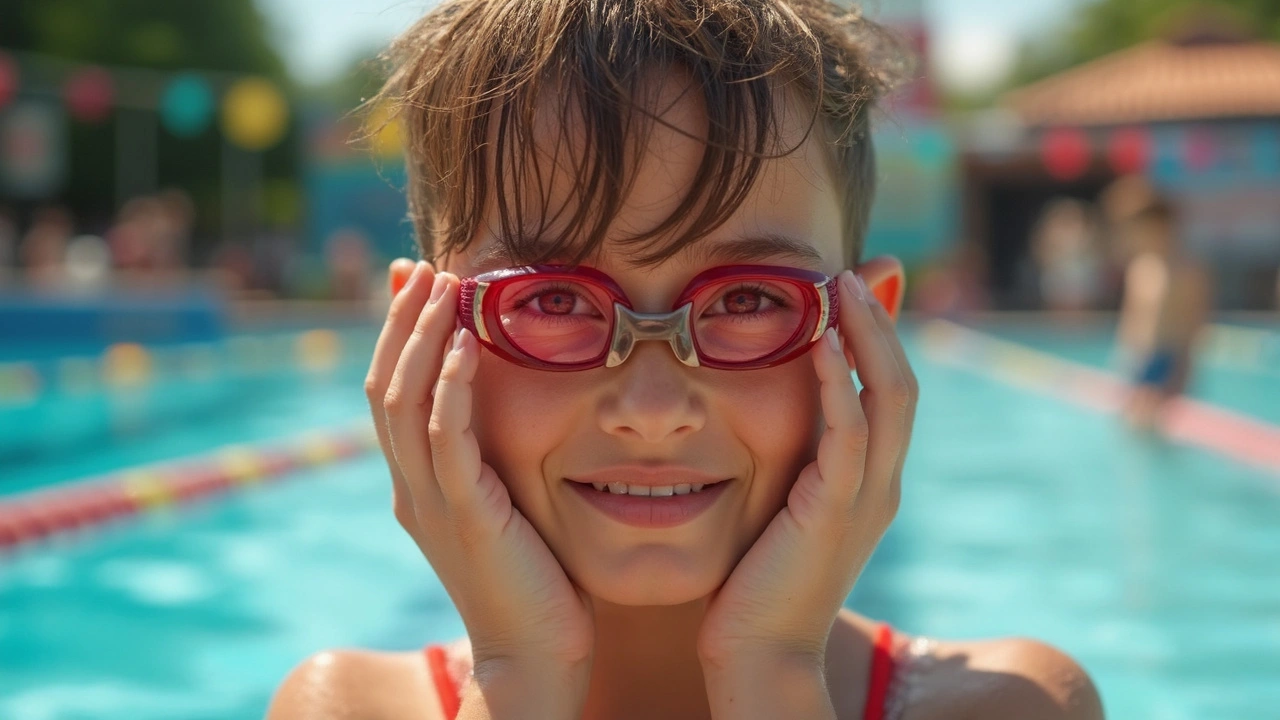Swimming Eye Care: Simple Steps to Protect Your Eyes in the Pool
Ever left the pool with red, itchy eyes? You’re not alone. The chemicals, salt, and even the water itself can irritate the delicate tissue around your eyes. The good news is you can avoid most of the discomfort with a few easy habits. Below are the most useful tips you can start using today.
Choosing the Right Goggles
The single most important thing for swimming eye care is a pair of well‑fitting goggles. Look for a seal that hugs your eye socket without squeezing too hard – a tight fit keeps water out, a loose fit lets chlorine sneak in. Silicone or soft rubber rims usually give the best seal. If you spend a lot of time outdoors, pick goggles with UV‑blocking lenses; they protect your eyes from the sun’s harmful rays while you swim.
Anti‑fog coating saves you from blurry vision. If the coating wears off, a quick rinse with a tiny drop of baby shampoo spreads a thin film that prevents fogging. For prescription users, consider swim‑ready glasses that snap onto the goggles. They let you see clearly underwater without compromising the seal.
After‑Swim Care: Keep Irritation at Bay
When you’re done swimming, rinse your eyes with clean, lukewarm water. This helps wash away any chlorine or other chemicals that might be sticking around. If you feel a sting, a few drops of preservative‑free artificial tears can soothe the surface and restore moisture.
Never rub your eyes after a swim – the friction can cause tiny scratches and make irritation worse. If you wear contact lenses, remove them before you get into the pool and replace them with a fresh pair after you finish. Disinfect your lenses properly; bacteria thriving in pool water can cause serious infections.For kids, make sure they understand why they shouldn’t put their hands in their eyes while swimming. A simple “no‑touch” rule can prevent a lot of problems. Teach them to tell an adult if their eyes feel burning or if they notice any discharge.
If you notice persistent redness, pain, blurry vision, or a lot of watery discharge, it’s time to see a doctor. Those could be signs of an infection like conjunctivitis, which needs professional treatment. Early care prevents the infection from spreading and getting worse.
Finally, keep an eye on the pool’s maintenance schedule. Well‑maintained pools have lower chlorine levels and better filtration, which means less irritation for everyone. If the water smells strongly of chlorine or looks cloudy, consider limiting your time in the water or using more protective goggles.
By picking the right goggles, rinsing properly, and watching for warning signs, you can enjoy swimming without the after‑swim eye drama. Your eyes will thank you, and you’ll spend more time having fun in the water rather than dealing with redness and itchiness.
How to Quickly Reduce Eye Redness After Swimming: Proven Tips & Relief Methods
May, 9 2025
Battling red eyes after a swim is more common than people think. This article explores the real causes behind post-swim eye redness, busts popular myths, and offers smart, practical tips for soothing irritated eyes. Find out which remedies truly work, what to avoid, and how to keep swimming fun without compromising your comfort or health. Dive into a swimmer's guide on preventing and treating 'chlorine eyes,' with insights rooted in both science and everyday experience.
Read Article→
